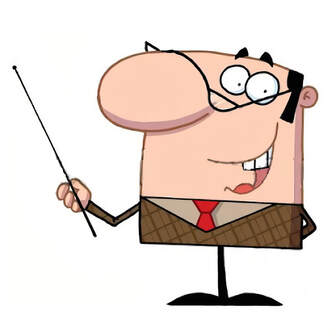 In last week’s blog I featured questions that should never be asked of an author. I received some comments that I was being a trifle sarcastic, harsh even, as people were simply being curious. So, to restore some balance, here are some questions, with my answers, that I don’t mind being asked. I must stress that these are my opinions and other authors may answer these questions differently. When it comes to writing, there are few hard and fast rules, there is only what works for the writer.  1. What is the major challenge for you as an author? Coming up with a fresh approach to a story. Since Homer wrote the Odyssey just about every story there is to tell has been told many times over, so for the modern author there is little they can do except find a new way to tell an old story. There are really only 7 plots for stories, and even then there are similarities and cross overs, so each author has to take one of those seven plots and find a new angle. Perhaps the best modern example is the Harry Potter books by J K Rowling. Stories about wizards are nothing new (Merlin, Gandalf), neither are stories of boarding schools (Billy Bunter, Mallory Towers), but a story about a boarding school for wizards, that was something new. 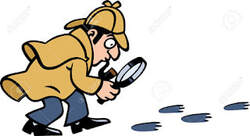 2. How do you work out your plots? The truth is that I don’t really know. I have an idea for a story and then I start to write. What happens is often as much of a surprise for me as it is, I hope, for the reader. Of course, I have a general idea of where the book is going to end up, but not much of an idea of how it will get there. My Magi sci-fi series is essentially a quest. But quests that go straight from A to B aren’t very interesting. Imagine if Frodo Baggins and Sam Gamgee had gone straight from the Shire to Mount Doom, it would have been a pretty dull story and you would never have heard of J R R Tolkein. So they have many adventures along the way and meet many other characters. The same applies in my Magi series. Each of the nine books is a story in its own right before An Kohli, my protagonist, can complete her quest. If she didn’t it wouldn’t be a series of books, it would be just one very short book. Sometimes I will create a situation and not know why. I don’t worry about it at the time, because I can always edit it out if I don’t need it or it doesn’t work, but I often surprise myself there as well. In “The Warriors: The Girl I Left Behind Me” I introduced a character called Sergeant Major Smith, whose negligence leads to the death of a soldier on a rifle range. I didn’t know why I had done it, but it worked as far as it went. Later in the book, however, I wanted to set up another tragedy and found that I had unwittingly created the character who would enable the tragedy to come about. So, my plots often surprise me as much as they surprise everyone else. 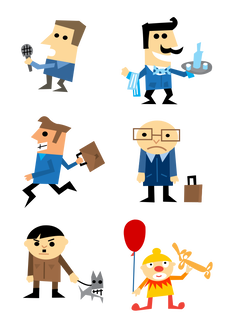 3. How do you create your characters? It’s a bit like building a house. I start with the foundations and work my way up to the roof, before decorating and laying the carpets. The first thing I decide is what sort of a character they are. I don’t like wholly good or wholly bad characters, so I tend to think of them in shades of grey. In The Magi I created a character called Den Gau. He is a bit of a coward, but when the chips are down he surprises himself and everyone else by stepping up to the mark. These are the sorts of characters I find interesting and I hope readers do as well. Next I usually write down a physical description: gender, height, build, hair colour, physical appearance, style of dress etc. That gives me a framework on which to hang everything else. In writing sci-fi this can be fun, because I can let my imagination run wild. Then I need to understand what motivates the character. One of the things I dislike about much modern fiction is that the antagonist, the baddy, is usually such a one dimensional figure in terms of their motivation. We are supposed to believe that they are bad just because we are told that they are bad. I don’t believe that people are born bad, so I have to understand what made them that way. To portray all bankers as being greedy, for example, is as shallow as a puddle in the summertime, so I need to know what made my greedy banker so greedy. After that I will start to layer on some character traits, kindness or cruelty, bravery or cowardice, pride or humility. As with motivation, it isn’t one size fits all. These are polar opposites on discrete axes and most people sit somewhere in between, so it is up to me where along these axes each character sits. For my character of An Kohli I have given her a very strong code of ethics, but if she stuck rigidly to them I wouldn’t be able to make some of the plot work, so I have to let her bend her own rules from time to time. But how far can I let her do that before she fails to be believable as an ethical character? Not everything I have described will make it onto the page, but I have to understand it all if I’m to create believable characters and this is especially true if they are recurring characters in a series of books, because readers who follow the series will expect the characters to remain consistent in their behaviour. We would never accept it of James Bond, for example, if he suddenly started to take bribes to walk away. 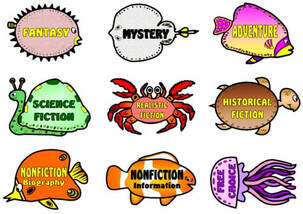 4. Are there any fiction genres you won’t attempt to write? The sorts of books I enjoy writing are the same as I enjoy reading. I’m very much action adventure oriented, so that is what I write. I may locate my stories in outer space, but they are still essentially action adventures. I won’t, therefore, try to write romantic fiction. There is nothing wrong with it as a genre, but I don’t read it and I don’t think I would be good at writing it. The same applies to erotica. Most erotica is actually pretty boring and I’m not sure why it sells so well. For me it sits in the same zone as voyeurism, but without the risk of being arrested for being a peeping tom. I wouldn’t write a western for the simple reason that there is a lot of specialist knowledge required to write it well. Most western fans know their subject inside out and they will spot a faker at a hundred paces. I am a lover of historical fiction but the demands of research for that are considerable. I discovered this when I set out to write a biography of my father’s war service. However, once I had done the research for that, I found I had enough material for a whole series of books set during World War II.  5. How do you go about editing your books? Any mother will tell you that there is no such thing as an ugly baby and writers feel much the same about their books. To go back and try to judge a book for oneself after taking between 3 to 6 months to write it is very difficult, but it must be done. Any author who is struggling to find a publisher is probably struggling because they haven’t been critical enough in their editing. I start with the simple things: typos, spelling, punctuation and grammar. I won’t get everything right even then. You can spot a self-published book from a hundred miles because it will be littered with simple errors that the author failed to spot. The next step is to take each scene of the book and try to assess whether it really works. This is the difficult part, because self-criticism is so hard. Some authors go the other way and slash and burn their manuscripts, practically destroying the book and having to go back and pretty much re-write the whole story. To avoid this, I do an initial critical edit of each chapter after I complete it, so I’m not wasting lots of time. There are two critical elements I try to eradicate. The first is “show vs tell”. Think of this as the difference between watching a football match live and listening to a match summary from Chris Kamara. In “show” the author paints a picture of what is happening within the story, so that the reader can visualise it. But with “tell” the author is merely presenting a report of what happened. It is the most common criticism levelled against first time authors and again, self-published authors suffer the most from the affliction. "it is essential to get an independent person to read the book " My final edit is always of dialogue. I try to write conversations the way people actually speak, because that is going to be the most authentic, so it is important to play those conversations back in my head, to make sure I have achieved that goal. I sometimes find that I have gone off on long lectures, which isn’t something that is allowed to happen in real life because the listener usually interrupts or falls asleep. There is an exception to that. My Carter’s Commando novels often feature military briefings and these provide a way of providing a lot of background material behind the historical context of the story I am telling. However, real life briefings rarely contain so much detail. They focus more on what is going to happen, rather than what has gone before. After that the manuscript goes off to my publisher for more editing. That is much more revealing as it is a fresh pair of eyes that is interpreting what has been written. So, if someone can’t take criticism, it’s best for them not to become a writer. If you want to self-publish then it is essential to get an independent person (or better still – people) to read the book and provide honest feedback before publication. Friends and family aren’t a good choice, because they want to be kind, which is no help at all.  6. What do you think about bad reviews? If you can’t take criticism, then it’s best not to read reviews because they aren’t all going to be good. And our friends the internet trolls aren’t above leaving terrible reviews for books they have never read. Not everyone will enjoy a book and if someone doesn’t enjoy it then their opinion is as valid as those that did enjoy it. Some bad reviews can be very helpful. If several people are saying the same thing it is worth paying attention and trying to fix the problem. The worst reviews are those that don’t tell the author anything. Saying “I hated this book” isn’t helpful, but saying “I hated this book because….” can be. If you are a reader and you enjoy a book, please do submit a review. Sharing your pleasure helps the author. It doesn’t have to be fancy; a simple “I enjoyed this book” is as good as a 500 word essay. If you enjoy the food at a particular restaurant you tell your friends, don’t you? So why not tell your friends about books you have enjoyed?  7. What advice would you give someone who wants to become an author? Don’t do it for the money. You are likely to end up poor. Hundreds of thousands of footballers play in the amateur leagues, but only a couple of hundred footballers get paid thousands of pounds a week to play in the Premier League. The same applies to authors. About 99% of authors, even those published by the big publishing houses, earn less than the national average wage. Each year a couple of new names hit the big time, but they are a tiny fraction of the total number of people who write books. So if you love writing by all means become a writer, but do it for the love of it. Anything else is a bonus. Secondly, don’t assume that because people say nice things about your books it means you are a good writer. Friends and family don’t want to hurt your feelings, so they say nice things. The only real way to find out if you are talented is to get your books read by strangers. They will tell you the truth, and sometimes the truth hurts.  There are a lot of sharks in the publishing world trying to make money off the backs of authors, so: (1) Don’t pay publishers to publish you; they are supposed to pay you from your sales. (2) Don’t pay people to publicise your book. If your publisher isn’t doing that for you, what is he (or she) doing to earn their share of the income? Especially don’t pay those people who just Tweet your book title. They don’t produce sales. (3) There are some things worth paying for: (a) a professional critique of your work and (b) a good cover design, but look for references before committing yourself. Finally, just because your books don’t sell it doesn’t mean that your books aren’t good. Publishing is a very crowded marketplace, well over a million new books are published every year. It takes a lot to get noticed and some people never will be, no matter how good their books are. So, once again, do it for the love of it. If you have enjoyed this blog, ot found it informative, be sure not to miss any future posts by signing up for our newsletter. you can even get a FREE ebook just for doing it. Click the button below to find out how.
0 Comments
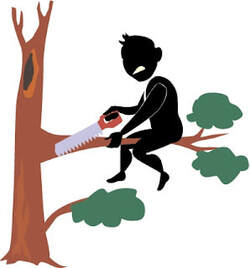 I have to thank Hannah Heath and Sue Falagade Lick whose blogs I have pillaged to find some of these questions, but they served only to remind me that I, too, have been asked them. I have added a few of my own and, of course, the answers are all mine. Q1. Are you still writing? There are many ways of answering this, most of which will be sarcastic. If I say I am a writer, or an author, then the answer will remain “yes” until I tell you that I am no longer a writer or an author. Q2. Is your new book out yet? My new book is always out, until I have a new new book, then the old new book becomes the previous book.  Q3. Where do you get your ideas? I find them in my breakfast cereal (sarcasm). Story ideas are all around us, all the time. What a writer has to do is pay attention to the world and find a way of turning the mundane into something interesting. Q4. Do you ever want to go shopping/to the beach/out to breakfast/(insert other distractions)? No. I’m too busy writing. Unless you want a game of golf. Q5. How about tomorrow? Still busy writing (unless you want to play golf). I’ll have time for diversions when I’m no longer a writer (or golfer).  Q6. What do you do all day? Oh please! Q7. Would you collaborate with me on this idea I have for a book? Do you mean “Give up the work I know I can earn money from to work for you speculatively for free for 6 months and then give you half the royalties on whatever comes out the other end”? I think I’ll pass. Pay me and I’ll think about it.  Q8. How much money do you earn from writing? How much money do you make from what you do? You show me your bank statement and I’ll show you mine. But here’s a clue: I drive a 6 year old Hyundai and when I go on holiday I fly on budget airlines. 99% of all authors are like me (only the model of car varies). Q9. Can I get a free copy of your book? Yes, if you ask your local library to buy a copy and put it on their shelves, then you can borrow it for free. I do this for a living, not as charitable work. But I’ll sign your copy for free if you buy one. Q10. So, like, you're going to be the next Lee Child? I would like to say yes because he is a good writer, but the truth is I’m going to be me. I may be influenced by other authors, but the presentation will always be mine. Q11. You write sci-fi? Why don't you write something real? Sci Fi is just the vehicle I use to tell my stories. It allows the reader to see issues from another perspective. Imagine if you were an alien and arrived on Earth, what would you make of some of the things we do to each other and to our planet? What would you think of the way we might treat you? By the way, I don’t just write sci-fi. I have also written a fantasy, a political thriller, three action adventures, a 7 book series set during World War II and a parody of a Charles Dickens book.  Q12. How do you fill your time? (This answer may be accompanied by physical violence, so please stand well back) I sit painting my nails. What do you think I do all day? Have you ever tried to write a thousand words that are interesting to read and which keep the reader sufficiently engaged so as to want to read the next thousand? Q13. So which character is you? It’s the hero, isn’t it. It’s a thinly disguised autobiography, isn’t it? No it isn’t. That’s not how it works. Each major character is made up of a set of character traits that allows them to function within the environment that I create for them. If they are good it is because I make them good and if they are bad it is because I make them bad. Q14. So which character is me? The one that dies horribly in Chapter 1. Sorry, did I say that out loud? Please refer to Q13. I may borrow some character traits from people I know, but none of the characters are wholly one person or another. If I do base characters on real people’s character traits then they are usually mixed and matched to suit the story. 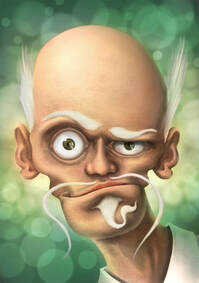 Q15. Writers are really weird. You know most of them go crazy? That's not strictly a questions but I'll answer it anyway. There is no such things as normal, so there is also no such thing as weird, other than in the purely subjective sense. As for going crazy, it’s only by writing that I actually stay sane. Sorry, does me holding this knife make you feel nervous? Q16. How do you go about writing a story? I have an idea, I sit in front of my PC and I start to write. It’s easy. I may change the idea as I go along, or I may stick with it. I may scrap the whole thing and go back to square one. There are no rules. It’s one of the reasons I enjoy writing. Q17. Can anyone be a writer? Yes, but if you are asking these sorts of questions, it probably means you aren’t cut out for it.  Q18. Do you ever suffer from writer’s block? Writer’s block affects many writers at some time, but there are ways of dealing with it. My own way is to take some time off writing and return to it refreshed, or when some new idea drives me back to the keyboard. There are also numerous other tricks that can be used, such as using “writing prompts” to get the words flowing, then diverting the flow back towards my work in progress. Q19. Would I like your books? (Variations include “would your books appeal to me?”) I don’t know. Why don’t you buy one and find out? It will cost you less than the price of two pints of beer and will keep you occupied for much, much longer. Q20. Would I have read anything by you? I don’t know. Look at the covers of your books; if my name is on any of them then, yes, you have read something by me. Q21. Will you put me in one of your books? Yes. Then I’ll kill you in the most horrible manner I can think of, then I’ll resurrect you so that I can kill you again. 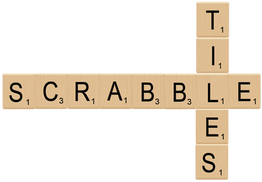 Q21. How do you come up with the names for your characters. Telephone directories. Except in my sci-fi novels. There the character names are created from a sort of Scrabble approach. Q22. When will you give up writing? When I’m dead or when I run out of ideas for stories, whichever is the sooner. If you have enjoyed this blog, or found it informative, be sure not to miss future editions by signing up to our newsletter. You will even get a FREE ebook just for signing. Click the button below. 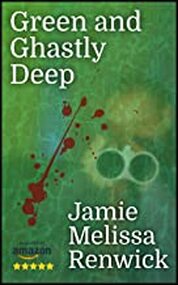 Another book found by accident. The author said on Twitter “If anyone buys my book, I’ll help them with Wordle”. I replied, “If you never mention Wordle again, I’ll buy your book.” It got a laugh and a deal’s a deal, so I bought her book without knowing anything about it. And I’m quite pleased that I did. It’s a crime caper with a female protagonist, a sort of bra wearing Jack Reacher, but with a lot more self-awareness and depth than Reacher is given. This protagonist knows her limits and tries to avoid situations where those limits may be exceeded. But as in all thrillers, she doesn’t always see things coming. But she’s still a feisty type and doesn’t take any BS from anyone, as she proves early in the story. The Green and Ghastly Deep, by Jamie Melissa Renwick, forms part of the "Theresa Maddux" series, but in this story we find out a lot of stuff that even Theresa (who likes to be called Reese) doesn’t know about herself. This voyage of discovery forms a sub-plot to the main storyline. "the book stands alone as a novel " So, Reese is enjoying a fishing vacation in Canada, where she lives, though she is actually American by birth and nationality. Her phone rings (they obviously have good wilderness coverage up there) and she is informed that her mother has been murdered in what appears to be a burglary gone wrong. Reese isn’t the type to let the police dismiss the incident so easily and hot-foots it back to her hometown – just outside Washington DC - and starts her own investigation. Yes, Reese has the skill set to do that, it goes with her day job of being a “recovery expert”. She recovers lost things (or people) for the people who have lost them and where it might not always be their wish to involve the police – or if the police aren’t interested or effective enough. Needless to say, her day job brings her into contact with some rather unsavoury characters and this is important for the plot of this book to work. Despite this back story, the book stands alone as a novel – you don’t have to have read the others in the series to enjoy this book for itself. Indeed, if you enjoy this book it may be an encouragement to read the others in the series. "The story is well written," The plot rattles along nicely with enough incident to keep the reader turning the pages. We discover things at the same time as Reese discovers them, so it isn’t possible for it to be a “whodunnit” that the reader can solve. Reese is convinced from the outset that her mother’s murder was more than just a burglary gone wrong and the “who” becomes apparent well before the end of the book, so the story is much more about the “why” of the murder. While the police will be satisfied with the who, finding out the why is Reese’s self-appointed mission. The story is well written, though it could do with much tighter editing. That’s why I’ve given it 4 stars rather than the 5 I might have thought about giving. There are a few scenes that just didn’t work for me and the input of an editor might have made them more convincing. To give a couple of examples, there is a conversation that takes place in the back of a mobster’s limousine that contradicts itself; something that an editor would identify and suggest is corrected. There is also a tantalising thread left hanging at the end of the book. We don’t know if this is deliberate, to be followed up in another book, or whether the author just didn’t think to tie it down. "Jamie’s books sell for bargain prices." But don’t let me put you off this book. Jamie Melissa Renwick is a good writer, and the book is well worth considering if you are looking for a crime thriller or a new author to follow. Just a word of warning if you have a weak stomach, as the graphic depictions of violence might leave you feeling a little queasy. I recommend The Deep and Ghastly Green by Jamie Melissa Renwick and I assure you that I’ll be looking into her back catalogue for future reading. In fact, I’ve already bought “Gunmetal Blue Moon”, the next book in the series (yes, I know that isn’t “back catalogue”). And for readers who are on a limited budget, Jamie’s books sell for bargain prices. If you enjoyed this blog or found it informative, why not make sure you don't miss future editions by signing up for our newsletter? Just click the button. or why not become one of our guest reviewers? Details of how can be found on the same page. 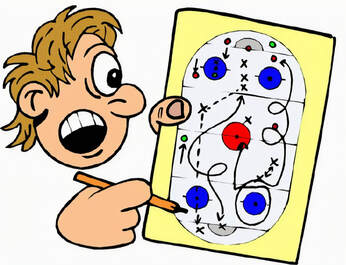 In last week’s blog we discussed marketing for the Indie author and, in particular, constructing a marketing plan. The blog was getting pretty long, so I didn’t say all I wanted to say at that time. What I did say was that the content of your plan lay in the old Rudyard Kipling quote “I keep six honest serving men (they taught me all I knew); Theirs names are What and Why and When and How and Where and Who.” Putting those words into questions helps you to decide the content of your plan: what you will say, who you will say it to, when you will say it etc. That is all good, but some people have never constructed any sort of plan at all, so this blog is aimed at them. How do you get from that Kipling quote to selling more books? For those of you who have written so many plans it is you who should be writing this blog, please feel free to tune out. Maybe go and browse our catalogue, which can be found on the ‘Books’ tab of this website. For everyone else, are you sitting comfortably? Then I shall begin.  The first thing you need when creating a plan is an objective, goal or desired outcome. Call it what you like, but it is a description of where you want to be by the time your plan has been delivered. For Indie authors this is usually quite simple to define – your goal is probably to sell more books. You even have a readymade measurement there to tell you if the plan is working – the number of books that you are selling after you have delivered the plan compared to the number you are selling now. But that is a big goal to achieve and you will need to do a lot of work to achieve it. What you also need to know is if your plan is taking you in the right direction. It might take you 3 months or more to achieve your goal and that is a long time to wait to find out that your plan isn’t working and needs to be re-thought. 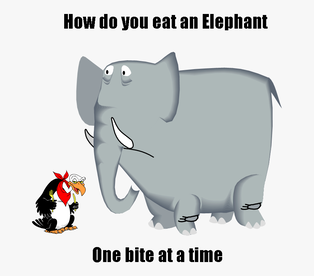 So you have to create sub-objectives, which you can tick off along the way to make sure you are staying on track for success. Believe me, if each step is successful, then the final outcome can never be in doubt. And if some of the sub-objectives still seem quite daunting, you can break them down even further. Remember the old maxim: “How do you eat and elephant? – One bit at a time.” (apologies to vegans). You may even want to run a few “pilot schemes” or “trials” to see if what you plan to do is actually going to work on a larger scale when you set the whole plan in motion and those trials also become sub-objectives.  Build the walls before you try to put on the roof. Build the walls before you try to put on the roof. One of the things of which you have to be careful, is that you lay out your sub-objectives in the right order. For example, if you were building a house, “Put the roof on” wouldn’t appear in the plans until after “dig foundations” and “build walls”. You may need to spend a bit of time making sure your marketing plan is constructed in the right order, just like you would build a house. 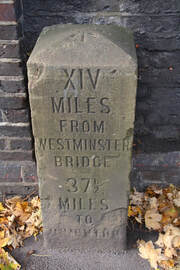 Last week we talked about getting some training in social media marketing, so that might be an early sub-objective in your plan. We also talked about writing your marketing messages, so trying those out on people might be another sub-objective. But basically, all you are doing is breaking down one very big and daunting objective into several smaller, less daunting tasks, then laying them out in a logical order. In project management we call the completion of sub-objectives or tasks “achieving a milestone” and it feels very rewarding to reach each milestone and tick it off your plan. But, just like real milestones, you have to know where they are, which means having some sort of measurement of achievement for each task. 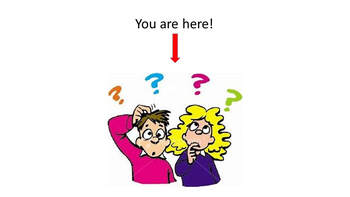 After all, there is no point in knowing “you are here” if you have no idea what “here” looks like. In the same way, you can’t know you have reached a milestone if you don’t know what a milestone looks like. A written description of what it will look like is the best way of recognising a milestone. For example, a description of the messages you want to send out about your book might read: “Write 7 sentences/paragraphs of up to 140 characters* that provide a clear indication of the book’s content., grammatically correct, correctly spelt and tested on sample readers.” You can see from the description that “quality” checks are built in. That is the sort of “product” or task description you could write for each sub-objective, so you will recognise your milestone when you get to it.  But all plans are meaningless if they don’t have resources assigned to them. A plan without the resources to deliver it is just a wish, a hope or a dream. These resources can include money, to pay for things such as advertising. But a far more important resource is information. You have to know the answers to those who, what, why etc questions you asked, so that you can apply your other resources in the right place at the right time. So one of your objectives is almost certain to be information gathering, or research as it is more commonly known. This will result in you not wasting your other resources (such as money) on the wrong activities. 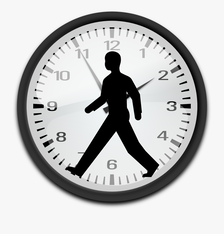 Time is another major resource. None of this stuff will do itself. Yes, I know, you’re a writer. You don’t want to have to spend all your time doing marketing. Which makes it all the more important that you don’t waste what time you are willing to expend on marketing, doing the wrong things. There is an old saying in quality management “Isn’t it amazing how people who don’t have time to get things right the first time they do them, always have plenty of time to correct their mistakes.” And if you are spending money, you can’t afford to spend even more money correcting mistakes by getting things wrong first time. So, all that research is critical to you avoiding getting things wrong the first time you try them.  The final resource I’m going to talk about is knowledge, which I have already touched on earlier. If you don’t really know what you are doing, you are going to waste your other resources on getting things wrong. “Trial and error” may teach you a lot, but it is an expensive way to learn. Invest in yourself, even if the investment is just time spent doing a free on-line course. We’re not talking about studying for a 3 year business management degree here, just a few hours learning the basics of social media marketing and trying out a few ideas to get a feel for what is right for you and your books. And once you have your marketing plan – you can use it again and again, refining it each time as you learn what works best and what isn’t working so well. Because you will have to keep repeating your marketing activity, because marketing messages soon fade from people’s consciences and you will always be looking for new readers who will buy your books, because nobody buys the same book a second time (except as a gift for someone else or because they forgot they owned it already). * We know that Twitter now accepts posts of up to 280 characters, but you need to make an allowance for the inclusion of a link to the book’s sales page and for hashtags. And, of course, character count isn’t an issue for Facebook posts, though people rarely read beyond the first few lines. For Facebook, think “elevator pitch”. If you have enjoyed this blog, or found it informative, make sure you don't miss future editions by signing up for our newsletter. We'll even give you a FREE ebook if you do.  The most common complaints from authors I follow on Twitter are about marketing their work. They either say how hard marketing is, or they ask questions about whether it is necessary to market their work – before going on to ask how to go about marketing. Last year we posted a series of blogs about marketing for the Indie author and there are many other bloggers out there who have shared their knowledge, so there is no shortage of advice available. But to deal with the first issue first, yes, marketing is hard work. But it is essential work if you are an Indie author because no one is going to do it for you. 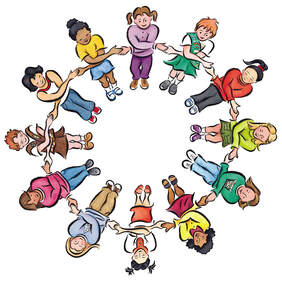 Small circles limit sales. Small circles limit sales. I’m not going to go back over the same ground again; if you want to know what I wrote about marketing you can find my blogs in the archive and if you want to know what other bloggers have said then just Google ‘blogs about how to market a book’. But I will offer some guidance here, just to whet your appetite and maybe prompt you to read a bit further. Let’s deal with the obvious, which is that the only people who are going to buy your book are the people who you tell about it. If you limit that to friends and family, then that is going to be your entire readership. 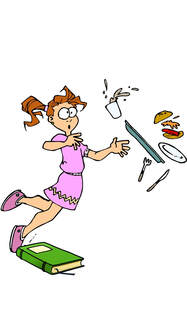 Marketing your book is about getting beyond friends and family to a wider audience and telling them about your book. On the optimistic side, your potential audience is global, but you have to find them because they won’t find you. I’ve said it many times in these blogs, but I’ll say it one more time. No one is going to stumble over your book by accident. Yes, it will show up in the search results on whatever book selling site you choose to use, but probably not on the first page of results, or even the second or third pages – and people looking for something to read very rarely get that far down the search results. So, what can you do about it?  The first thing is to find out how to market your books. If you don’t know what you are supposed to do, it becomes much harder to do it. And if you have heard that all you have to do is go on social media and make a few posts about it, then you have been misled. There is far more to it than that. OK, how do you learn? There is a very good website that offers free on-line courses, covering a wide range of subjects including social media marketing. Google “Futurelearn” and then search ‘social media marketing’ on their website. Most of the courses can be completed in a day if that’s the way you want to study them, but you can take as long as you want to finish them. Yes, it is time consuming to learn new skills, but floundering around in the dark and getting more stressed about why your books aren’t selling is far worse. It is better to light a candle than to curse the darkness (William L. Watkinson) – so light a candle of learning.  Like it or not - you need a plan. Like it or not - you need a plan. The next thing you need to do is to make a plan. Yes, boring, I know. But you can’t focus your efforts to get the best results if you haven’t got a plan. We’re not talking about constructing Gant charts and Pert charts here - you aren’t building a rocket ship. Pretty much the whole of your marketing plan can be written on one side of A4 paper – in big letters. 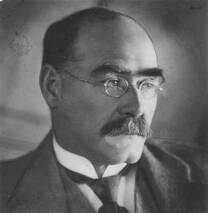 Rudyard Kipling - he had 6 good serving men. Rudyard Kipling - he had 6 good serving men. You may be familiar with the Rudyard Kipling quote “I keep six honest serving men (they taught me all I knew); Theirs names are What and Why and When and How and Where and Who.” Those 6 words form the basis of your plan. I’ll address them in the order they appear in the quote, for no other reason than that. So, ‘what’ do you want to say about your work? Having half a dozen, short clear messages to tell people about your work is essential. 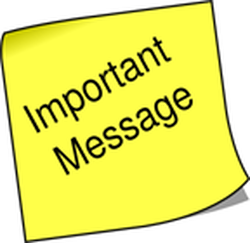 Why half a dozen (it could be more)? Because people get bored reading the same Tweet or Facebook post time and time again. You need to keep your message fresh. And your message needs to sell the sizzle, not the sausage. What do I mean by that? Well, a sausage is a pretty mundane foodstuff, so you have to sell the ‘image’ of the sausage that gets people’s mouths watering: the golden-brown sausage sizzling in the pan, sending out appetising aromas. If you think that sounds like a hard thing to do, then I suspect you shouldn’t be a writer. Creating written images like that (and better) is your stock-in-trade.  ‘Why’ follows neatly from What. With so many books on the market (millions of them), why should a reader choose yours? You have to tell them why. You have to have a USP (unique selling point); something that your book does that no other book can or will do for them. We call this the ‘story’ and it has to sound attractive. It helps if you understand who your readers are and what they are looking for, because that will allow you to target them with the USP that will appeal to them. Because it will be a different USP for readers of romance, compared to readers of SFF, to use one contrasting example.  ‘When’ is a tricky one, but you have to know when your readers are going to be on social media. It will be at different times for different types of reader. If you are writing YA or children’s books, then school hours are out. If your audience is mainly elderly readers, then forget the evenings, because that’s when they watch TV – and they go to bed earlier. So this ‘when’ issue is something you really need to think about. Tweets start to lose their visibility to users just 5 minutes after they’ve been posted. Facebook posts start to lose their visibility after about 25 minutes – so timing is important if you want your messages to be seen. Did you know you can schedule posts on Facebook and Twitter, so they can be posted on whatever day and at whatever time you want, not just when you are on-line yourself? Other social media channels may allow you to do the same – so use that facility. 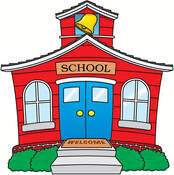 Every day is a school day! Every day is a school day! ‘How’ is the bit you really need to learn. There are good ways of promoting work and there are bad ways. If you think you already know the good ways, you can still learn the better and the best. Every day is a school day, as someone once said and if you already know everything – why are you reading this blog? 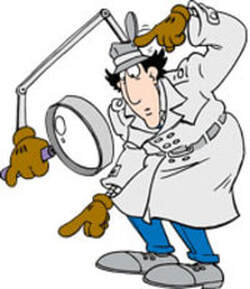 You have to search for your audience. You have to search for your audience. You may think ‘where’ is a simple matter – social media of course. Well, there is more than one type of social media, for a start and not all of it is good for all types of writing. As I said in a previous blog, if you write for children or YA, then there’s no point in being on Facebook and Twitter, because your readers are on Instagram and Tick Tok. Do some research to find out what sort of social media your readers are likely to use – then use it yourself. But also in the ‘where’ category are places other than social media. There is a whole raft of readers who get their book suggestions from sources other than social media, and it is beneficial for authors to use them. Local book shops, book fairs, public library events, even the village fete is a potential outlet for the entrepreneurial author. But if you don’t publish hard copy books, these will have a limited impact on the people who go to these things, because they will want to buy a copy at the time, not go back home and order on-line. Then there is local radio and your local newspapers – but you have to reach out to them, because they aren’t going to come looking for you. But they do have column inches or air time to fill, so they are usually receptive. And all this is before you consider paying to advertise, which is an option that is open to even the smallest purse. 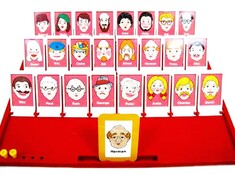 The last friend amongst the 6 is ‘who’. We’ve already touched on this to an extent. Who will buy your book? Not everyone who reads books will read the sort of books you write. I don’t read westerns, for example. There’s nothing wrong with westerns, they just don’t appeal to me, in the same way that paragliding doesn’t appeal to me. You have to know who your readers are so that you can focus your efforts on reaching them and not wasting time (and often money) sending out blasts of promotional material to people who will never buy your books. Some of them may never buy any books at all, let alone yours (we call these people “weirdos”). I know all of the above sounds daunting but, as Lao Tzu said a very long time ago, a journey of a thousand miles starts with a single step. And the best single step you can every hope to take is to go back to school and learn how to do your social media marketing better. Good luck with your marketing plan and please feel free to share your success stories in the comments section below. If you have enjoyed this blog or found it informative, why not sign up for our newsletter so you can be kept informed about future blogs. And you can get one of our books for FREE just for signing up. Click the button below to find out more. |
AuthorThis blog is compiled and curated by the Selfishgenie publishing team. Archives
June 2025
|

 RSS Feed
RSS Feed